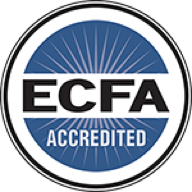In an effort to broaden retirement plan access to employees whose organizations do not offer an employer-sponsored retirement plan, several states have enacted legislation mandating employers to participate in state-run retirement programs. Largely, enrollment in these programs is required by a certain date, unless an employer meets specific criteria for exemption. Although approaches to these programs vary, the most common arrangement is the Auto-IRA. FCMM has briefly reviewed Auto-IRA savings programs across a dozen states to provide you with some general considerations – including typical program features, exemption criteria, and reporting requirements.
Features of Auto-IRAs
- Automatic Enrollment – As the name indicates, unless an individual opts out of participation, Auto-IRAs require the employer to automatically enroll employees in its state program and commence payroll deductions – often with a scheduled auto-escalation feature, routinely increasing the percentage of an employee’s contribution rate over time.
- Contribution Type - Unlike 403(b) plans, in which an employer can contribute a match or straight employer contribution on behalf of its staff, the state-administered IRA programs only allow for employEE payroll deductions. Additionally, several of the Auto-IRA programs are restricted to Roth-IRA accounts.
- Contribution Limits – Similar to other IRA programs, the contribution limits are much lower than what the IRS allows with 403(b) plans, like the FCMM Retirement Plan.
Exemption Criteria
Exemption criteria can vary from state-to-state. In our brief review of 12 different programs, we found three main reasons that an employer could be exempt from participating in its state-run Auto-IRA:
- Number of employees
- Classification as a religious organization
- Presence of an employer-sponsored retirement plan
It is important to note that only a couple programs include “classification as a religious organization” as a reason for exemption. For those that do, however, FCMM believes it may be the most reliable justification for exemption since it is a status that remains consistent for churches from year-to-year. If you are located in a state not permitting this exemption, your participation in the FCMM Retirement Plan would be a reliable basis for exemption, as well.
Reporting Exemptions
After a program is enacted for a given state, an implementation plan follows, detailing the employer registration process - including exemption rules. States such as Illinois and Oregon require an employer to report ANY exemption(s), indicating the basis for an exemption and documentation to support it. Conversely, California provides a few different reasons an employer may be exempt, yet it appears reporting is only required if the exemption is based on an employer already sponsoring a retirement plan for its employees.
Where we found indication that a few state programs are “up and running”, it appears some programs, although enacted several years ago, have still not been fully implemented – leaving exemption reporting rules unclear for those states. Despite lack of guidance, we would not recommend delaying exemption reporting, when available.
Summary Review
Based on our review, FCMM has compiled a quick glance Summary of State Sponsored Retirement Plan: Exemptions & Reporting Requirements for the states of California, Colorado, Connecticut, Delaware, Hawaii, Illinois, Maine, Maryland, Minnesota, Nevada, New Jersey, New York, Oregon, Vermont Virginia, and Washington [Seattle only] - which we've updated as of 9/28/2023.
States continue to introduce bills authorizing state-run retirement programs. It is important for churches to follow legislative activity in their state to stay informed of program developments, avoid potential penalties for late registration, and determine exemption criteria – including any associated reporting requirements. This article is limited in scope and based on a brief review of state-administered retirement programs. It is not intended to be a substitute for legal advice or an employer’s independent review of its state laws.

